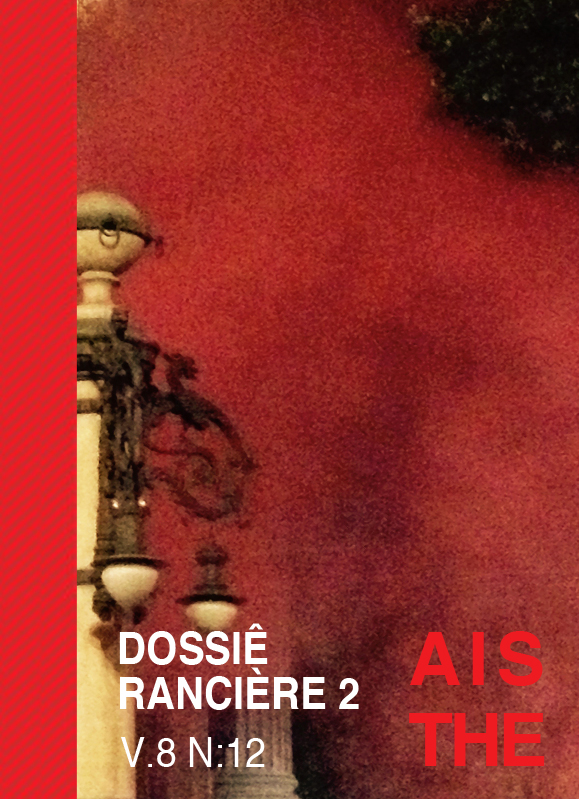MODERNIDADE E REGIME ESTÉTICO DAS ARTES
Palavras-chave:
Jacques Rancière, estética, filosofia francesa contemporânea, arte política, dissensoResumo
Quando consideramos a formulação "regime estético das artes", o que está em jogo é o fato de que nem sempre a arte foi apreendida sob a esfera da estética. Rancière delimita outros dois regimes de identificação das artes na história do ocidente, o ético e o representativo. A estética, que estabelece a recepção das obras no âmbito da sensibilidade e produz as categorias de sua análise, no entender de Rancière, embora tenha nascido como uma ciência, tal como definida por Alexander von Baumgarten, deve antes ser entendida como um a priori histórico que dá as condições ao mesmo tempo materiais e perceptivas da arte a partir do século XVIII. Os modos de circulação das obras, os seus sistemas de legitimação, as suas categorias de avaliação, tudo isso deve ser considerado no modo de abordagem das obras. Um regime, portanto, não sendo uma teoria, mas um conjunto de condições historicamente dadas, promove portanto uma determinada forma que pode mudar historicamente. Assim, esta comunicação pretende sustentar que o método histórico-crítico de Rancière - o qual aborda não apenas as obras, como também as condições de possibilidade de sua identificação em determinado momento histórico - pode justamente ser confrontado com toda uma tendência da estética atual que tende a desconsiderar a dimensão da história da estética na forma de analisar as obras de arte.Downloads
Não há dados estatísticos.


